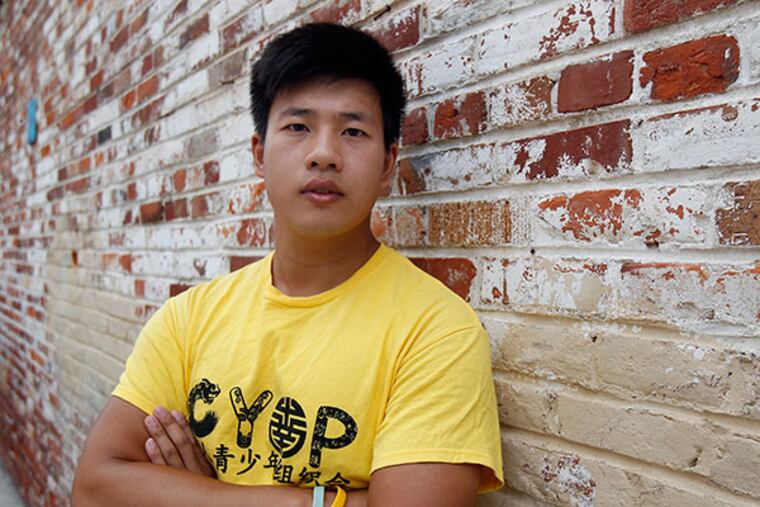South Philly youth leader wins $50,000 Peace Prize
A $50,000 Peace Prize gives South Philly youth leader a chance at following his dreams.

WHEN WEI CHEN looks back, there's a good chance that he will remember Sunday as a day that changed his life.
That's when 22-year-old Chen, a former South Philly High student who fought against anti-Asian violence there, became among the first recipients of a $50,000 Peace First Prize.
The two-year fellowship was awarded to 10 young people (out of 700 applicants and 50 finalists) for peacemaking efforts that improved their schools and communities.
For Chen, who was at a crossroads between family obligations and personal aspirations, the win is life-changing.
Chen's parents, hardworking Chinese immigrants, wanted their son to get a job.
Chen wanted to pursue his passion: continuing the kind of work he began in 2009, when he helped organize fellow students in a boycott against racial harassment and violence. The boycott led to a groundbreaking federal civil-rights settlement.
His mother, who works at a factory, and his father, a long-distance trucker, are proud of their son. But they haven't always been comfortable with his activism.
Their reservations are understandable. They emigrated from the Fujian province of China, where it was best not to attract attention. And here was their son, choosing a path that put him in harm's way when he organized students to fight harassment.
There was also the issue of economics for an immigrant family working hard to make ends meet.
"They sacrificed a lot for better lives," Chen said. "They wanted me to work in jobs they understood. But I felt this work was too important to walk away from."
The prize changes that, at least for a little while.
"It is like I am dreaming," Chen said when he got word that he was one of 10 winners. "I feel in my heart that this is what I want to do, and now I can continue to learn and to teach others. It is a dream come true."
Chen had been working part-time jobs and attending Community College of Philadelphia. Now he can concentrate on his work with the Asian Americans United in Philadelphia, where he leads training and workshops, and the Chinatown Youth Organizing Project, a group he co-founded to help new immigrant youth build leadership skills.
Eric Dawson, president and co-founder of Peace First, a national nonprofit peace-education program based in Boston, said Wei was a standout among many inspiring applicants.
"We looked beyond someone who had committed one act of leadership to those who had confronted injustice, crossed lines of difference and created lasting change," he said. "And that's certainly what Wei did. His actions not only changed one school, but changed a culture of indifference."
Helen Gym, co-founder of Parents United for Public Education and Chen's role model, said that at a time when philanthropic organizations are struggling with funding, the award sends a powerful message to young people.
"What is amazing about the award that Wei received is that it comes from a foundation that recognizes the power in investing in sustainable peace work in emerging communities," she said. "What young people like Wei are doing is nothing short of transformative."
Chen was excited to tell his parents, but he wasn't sure how he'd share the good news. Perhaps he'd wait and let them read it in one of the Chinese newspapers, he said. But more likely, he said, he wouldn't be able to keep it from them for very long.
"I think they will be proud," he said, pausing for a moment to consider his words. "Yes, I think they will be very proud."
Phone: 215-854-5943
On Twitter: @NotesFromHel
On Facebook: Helen. Ubinas